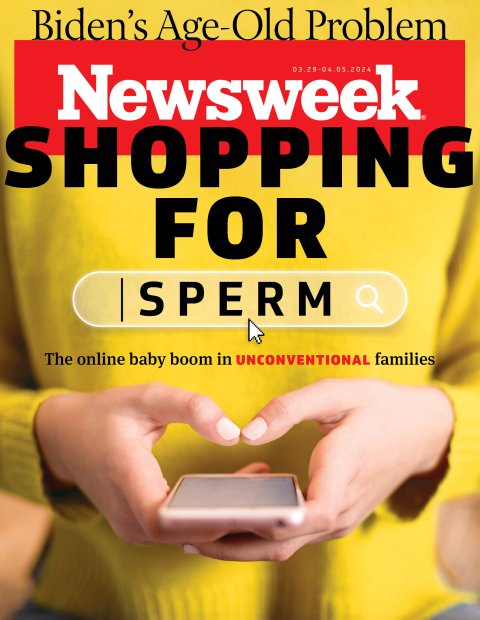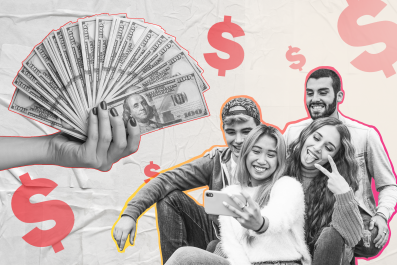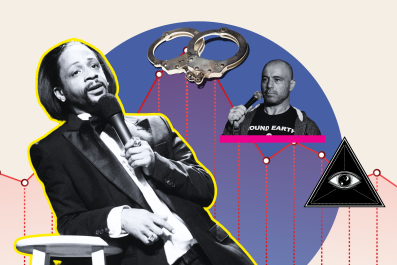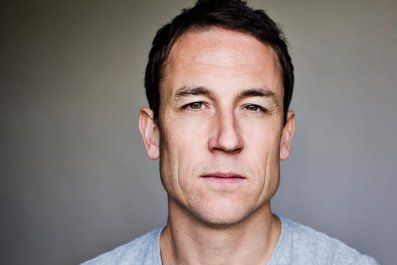Single women and LGBTQ+ couples are increasingly pursuing pregnancy via known donors—people they find on the internet, in Facebook groups and through dating-like apps. In her own quest to become a solo mother by choice, investigative journalist Valerie Bauman has spent the past four years embedded in the world of freelance sperm donation, attempting to get pregnant. Along the way, she interviewed dozens of donors, recipients, donor-conceived people and relevant experts. She learned that freelance sperm donation thrives in a corner of the online world where women's dreams come true: Many find decent men who will get them pregnant for little-to-no-cost. It's also a place where men go for easy sex.
Either way, more Americans are turning to this world to build their own unconventional families, whether driven by cost, fear of assisted-fertility institutions or a desire to know the biological other half of their child. Nearly 171,000 American women used sperm from a bank to get pregnant in 1995. By 2016 that number had risen to more than 440,000. As more U.S. women wait longer to marry and have a child, the demand for donor sperm has grown. Rosanna Hertz, author of Single by Chance, Mothers by Choice, estimated that approximately 2.7 million American women are single mothers by choice. This excerpt from Newsweek reporter Bauman's new book, Inconceivable: Super Sperm Donors, Off-the-Grid Insemination, and Unconventional Family Planning, provides a window into how exactly the world of unregulated sperm donations work.
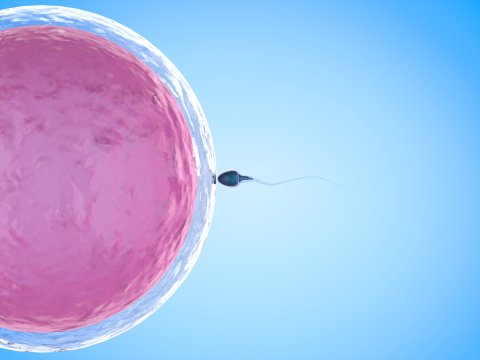
They inseminate themselves in cars, public restrooms and cheap motel rooms. They pray over urine-drenched sticks, guzzle supplements by the dozen and sometimes have unprotected sex with men they've only just met on the internet, Facebook groups or dating-like apps—whatever it takes to make their baby dreams come true.
What could possibly drive a woman out of the cool, clinical embrace of the health care industry for one of the biggest medical decisions of her life? For some it's the insurmountable costs imposed by the reproductive industry, or discrimination, or a lack of insurance coverage. Others just want to know the person who will help create their child.
I am one of those women. Like most, I started out scrolling through the sperm bank websites, analyzing donor profiles and squinting at their baby pictures. I even made a color-coded spreadsheet (green for positive attributes, red for negative and yellow for things that gave me pause). But like many women, I soon realized that sperm banks weren't the answer, not for me. I wanted to know the person who would help me create my child, to be able to give my kid answers and insights into where they came from.
This is a story of spitting in the face of virtually every cultural taboo around family, fertility and procreation for the sake of making motherhood a reality.
In July 2020, shortly after my revelation that I could become a mother on my own terms, I sat on the couch, computer in my lap, compulsively scrolling through various sperm bank websites. Over several days I built the spreadsheet entitled "Babies." I added 19 columns that listed the characteristics I could find on each donor using whatever details the banks provided for free—and what I could glean from photos. Some of the characteristics were physical: height, weight, build. Eye color and hair color are always listed, but some banks even provide details on the donor's hair texture and thickness. Race and ethnicity were also included.
Other categories were more practical, including sperm motility and price and whether the donor had any reported pregnancies or children of his own. Sometimes the gender of the donor's children was listed, which was helpful, I suppose, for those who had a gender preference. These weren't necessarily the things I cared about most.
I had money in the bank, ready to spend on sperm. But something felt off to me about this transaction. It was maddening. The decision was too important to make based on the limited information available.
On the sperm bank websites, when you're searching for free, you typically get a short bio about the donor's education, hobbies and basic medical history. Some companies, at no extra cost, offer short recordings of the donors' voices, usually with the men explaining why they want to donate or describing a relationship that has been meaningful in their lives. For me, it just felt so sterile. There was no way to get a real read on these guys. Plus, they were getting paid—was it just about the money? Could they really be prepared to face my kid in 18 years, if he or she showed up seeking a relationship? And damn, 18 years seemed like a long time for that kid to wait for answers.
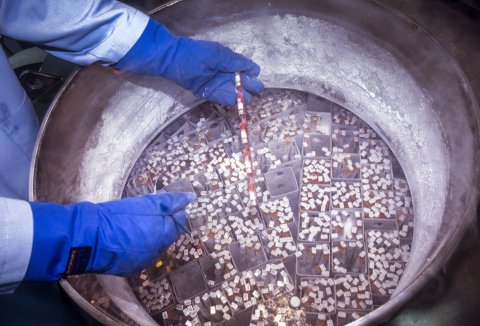
Shopping for a sperm donor at a bank felt a lot like shopping on Amazon minus the real-world reviews. You often can select several donors and then compare them directly on the bank websites with their key stats listed side by side. It was exactly like the product comparisons Amazon offers to allow customers to weigh which humidifier or vacuum they want to purchase. But this was so much more important than the average consumer decision. It was making me scrutinize the men based on physical attributes as if I were shopping for a designer baby. I care a lot less about hair and eye color than I do about the kind of person these donors are. And damn my journalistic instincts, but I was having a hard time trusting someone else to do the screening for me. I wanted to know this person. I wanted a baby, yes. But it was important to me that the baby grow up to be a kind and happy person. None of this information was going to help me make that happen. I wasn't totally sure what I wanted, but this wasn't it.
Restless, I did what I always did when I needed to think: took to the streets of Washington, D.C. I walked mile after mile for nearly two hours when something occurred to me. I stopped short, pulled out my phone and Googled: "sperm donor that you know."
I scanned for a few minutes—enough time to realize that finding a sperm donor who I could actually meet was a thing that could happen. I put my phone away and rushed home.
Online Matching
So many interesting things appeared before my eyes...something called the Known Donor Registry, which allows people to search for sperm donors. Facebook groups where sperm donors listed their services—for free? And an app called Just a Baby, where I could swipe left or right on potential donors?!
As I scanned through the various links, a warm sense of certainty came over me. Then I had to suppress a gleeful giggle, because...I was definitely going to find a sperm donor on the internet. And that was crazy, but I was going to do it anyway. This revelation meant that I could stop ignoring the nagging fears and uncertainties that were preventing me from pulling the trigger on a bank donor. When my kid asked me who their biological father was, or why he helped me make a baby, I wanted to have good answers.
This was a path that would allow me to get to know the donor and potentially allow the child to meet him before age 18. I could make sure that the biological father of my child was someone I would feel confident introducing to my future kiddo. Even better, I discovered some donors had private Facebook groups for the parents of the donor children to connect so half-siblings could meet each other and have a sense of family.
This was extremely enticing to me as someone who was going to be raising a child without a father. The more family, the more love, the better.
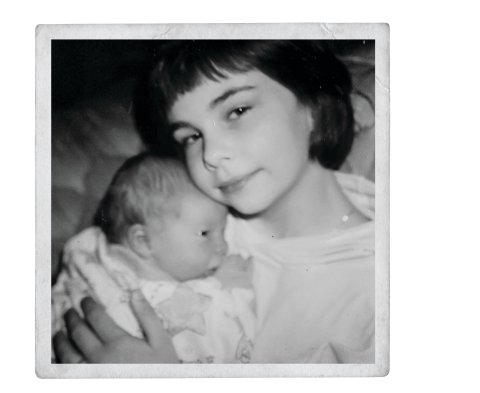
Dipping My Toe In
Catfish! CATFISSHHHHHH, I thought to myself. I had been on the Just a Baby app for less than 48 hours before I stumbled across a man with a Clark Kent jaw, paper-cut-sharp cheekbones and wavy brown hair. He was altogether too beautiful to be real. He also had the sexy cache—and hero status—of being a New York City firefighter. More importantly, he was smart (a degree in business) and had interesting, artistic hobbies, including sculpture. Most importantly, his motivation seemed altruistic. He was only helping people via artificial insemination—and he knew he didn't want to produce kids into the double digits. Both were important to me.
I mustered the courage to swipe right, and we matched and exchanged contact information. He was getting off work and was still in uniform when he answered my video call.
He took off his red firefighter helmet, flipped his hair and grinned a toothpaste-commercial smile. I was dazzled. Damn. Those are some good genes, I nearly said out loud.
"Oh! You're real!" I actually did say this out loud, instantly blushing.
The dream started to feel more tangible. The Firefighter shared photos from his childhood and of his entire family tree. It gave me a sense of connection that I wanted my child to feel. He was willing to meet the child and have a relationship, of sorts. But he wanted no legal or financial rights or obligations.
It was a perfect arrangement.
The Firefighter said that he appreciated the thought I had put into my profile.
I had posted the following on Just a Baby and, later, on sperm donor groups on Facebook:
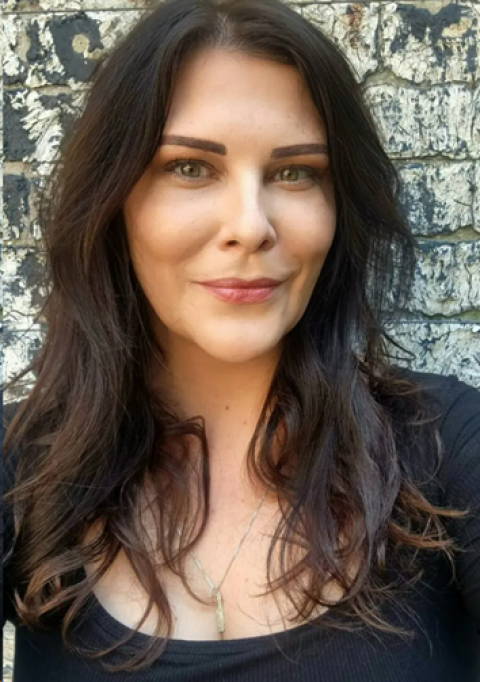
Seeking a donor in or near the Washington, D.C.–metro area. Artificial insemination only. Will consider working with folks willing to travel. Here's the rub: I'm looking for someone who's willing to be in the kid's life from birth, not every day or even every week or month. Not a coparent, but someone who can answer questions for the kid and provide a healthy explanation about why you chose to help their mom bring them into the world.
I'd love to make a new lifelong friend who shares my values and wants to stay in touch, get updates on the kiddo, and attend the occasional birthday party. I'm hoping to find someone reliable and kind.
A little about me: I'm an aspiring single mother by choice. I grew up the oldest of four, and the only girl. I loved caring for my little brothers and always wanted to be a mom. I've just found success in my career as a journalist that has never been matched in my personal life. It is my dream to become a parent, please help me make that happen.
Ultimately, plans with The Firefighter fell through. I was hesitant to travel during the pandemic and wanted to find someone who lived closer.
We parted ways, and I went back to Just a Baby to start swiping again.
How It Started
I soon realized the world of unregulated sperm donation is as fascinating as it is seedy. In the months that followed, I learned that the whole movement first emerged on Craigslist and on Yahoo message boards in the early 2000s before migrating to the newer websites and apps of today.
Back then, donors would list their availability to donate sperm and occasionally they would have a taker. Even more occasionally, a woman or lesbian couple would find these online discussions and post that they were seeking a donor. Often these arrangements were anonymous meetups with no way for either party to stay in touch. Sometimes the exchanges involved sex, other times it was just a hand off of a sterile cup full of sperm in a brown paper bag.
Now, two decades later, unregulated, gray-market sperm donation was exploding online, just as I started dipping my toe in. My reporter senses were set ablaze. This was going to be a huge story. And I was living it. I started taking screenshots of interesting posts on the pages and noting different donors and recipients who seemed to be particularly active in the Facebook groups. I spoke to the people who dominated the world and asked questions as I tried to grasp the nuances of this bizarre social interaction.
But this story is bigger than any one player. It's about the confluence of demand and supply—especially at a moment when millions of Americans were sitting at home, quarantined during a pandemic with nothing to think about but their mortality. These factors spurred an online baby boom.
In 2021, nearly 3.7 million births were recorded in the U.S.—a 1 percent increase compared with 2020, according to CDC data. That may seem small, but keep in mind that the prior five years before this uptick, birthrates were steadily declining by roughly 1 percent a year. Despite the turnaround, the number of births in 2021 failed to catch up with the 2019 total due to a drop in births between 2019 and 2020.
One Couple's Story
Latrice, a stunning African American woman with long black hair and a penchant for bright red lipstick, had her head on a pillow, her legs in the air and her toes squished against the ceiling of her bright blue Chevy Equinox.
Her wife had just inseminated her using a "lube-launcher"—a syringe-like device designed to shoot lubricant into a vagina. The couple had traveled an hour from their Michigan home to pick up a cup of sperm from Ron, a super donor who estimates he's produced 65 children and has more on the way.
For three days in a row, they had a conception routine with Ron's help. After picking up the sperm in a cup inside a paper bag from Ron, they would drive a short distance before pulling into a quiet hospital parking lot. Then Latrice laid down and scooted her 5-foot-1-inch frame as far into the backseat as she could. Her wife crouched on the edge of the opposite seat, her legs dangling out the partially open rear door. It only took a few seconds for the couple to complete their backseat DIY insemination.
"I kept my legs up for 15 minutes, then we drove off and went about our day," she said.
The couple hadn't anticipated getting the golden ticket: a first-time success. But a few weeks later Latrice had a vivid dream that she was pregnant.
"It felt so real," she said.
The next morning, she took a test, and it was positive. Now the couple has an 18-month-old son.
A Different Kind of Baby Boom
One factor that resulted in this boom in the unregulated market is that many fertility clinics closed their doors as "nonessential" medical procedures were put on the back burner during the pandemic, and as sperm banks had to pause accepting new donations—leading to a shortage. Even after clinics reopened, people who couldn't afford to spend thousands of dollars on sperm from a bank, or costly fertility procedures, increasingly went online to find free or cheap sperm.
Another upside to a freelance sperm donor is that you're getting fresh sperm (which lives up to five days in a woman's body), and sometimes receiving multiple donations per cycle. By comparison, frozen sperm is almost exclusively administered once per cycle, and it only lives in a woman's body for up to 24 hours—making timing around ovulation incredibly critical.
Many of these women, like me, seemed to be in their later 30s and realizing that they were in a now-or-never moment. There's data to back up this existential crisis: In 2021, new births among women ages 20 to 24 declined by 3 percent, but they rose as much as 5 percent for women ages 25 to 44.
Many people gain access to unregulated sperm donation through the Known Donor Registry, a website where donors and recipients can draft profiles and seek each other out. The KDR describes itself as a free community resource and platform for connecting donors and recipients. As such, it has a lengthy "terms of use," in which it makes clear that members are responsible for vetting the accuracy of donor profiles and for any interaction that may take place. It's not clear how legally binding the terms of use are; however, people have been kicked off and blocked from KDR for not complying with the rules. The site's code of conduct requires users to be respectful and abstain from using illegal drugs and transmitting STIs. It also recommends legal contracts and bars any requests for payment in exchange for gametes. Members may not "state or imply" that sex is a more effective way to get pregnant than artificial insemination methods.
One of the most popular sperm donation Facebook pages saw its membership grow by thousands per month at times, tripling between June 2020 and June 2022, and eventually reaching about 24,000 members. By August 2023, membership had grown 175 percent. As more recipients flocked to the page, the donor population has grown, too.
I found Facebook groups to be the real lifeblood of this world. Unlike Just a Baby, which is essentially Tinder for getting knocked up and an extremely unregulated setup, the Facebook groups allowed recipients and donors to exchange information on a semi-public forum, so there's a little bit more accountability. The posts range from insemination advice to pregnancy announcements. Recipients looking for sperm will frequently post a picture along with their location and a few details about what they want in a donor.
Similarly, donors will post photos of themselves and/or their successes. Think: cute baby pictures and positive pregnancy tests. All of this is a bid to attract new recipients.
The groups are also a place where everyone is encouraged to video chat first before meeting in a preferably public place for the first time. The moderators are mostly donors, but there are a few recipients, too.
Moderators do their best to screen out the creeps and trolls. But like any other internet community, I quickly learned that it's tough to keep up with sometimes.
All of this was wildly new territory for me. But there was a palpable sense of empowerment among successful recipients: They had gamed the system, found a shortcut around the reproductive industry and still wound up with a baby—and a complete family. It intrigued me, particularly in the larger social context of humanity and how we define families. Increasingly, women are becoming parents without a father present, and LGBTQ+ couples are finding ways to build families on their own terms. These online spaces make it possible for many people in marginalized groups to have biological children since the conventional health care system largely favors coupled heterosexual people with plenty of financial resources.

This is a moment when people are talking more openly about what it means to build different kinds of families and reproductive rights are at the forefront of politics and culture. Along my personal journey, I've explored the psychological, legal and ethical ramifications of finding free or cheap procreation assistance online and going through with the process of starting a family with the help of a stranger. Could this be a critical moment of empowerment for new kinds of families? Or a risky prospect with myriad complications to consider?
What does it mean if the answer is both?
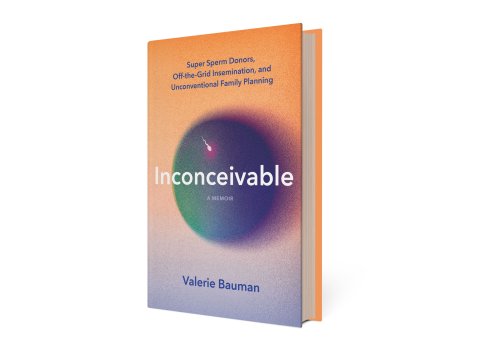
Adapted with permission from Inconceivable: Super Sperm Donors, Off-the-Grid Insemination, and Unconventional Family Planning by Valerie Bauman. © 2024. Published by Union Square & Co.
